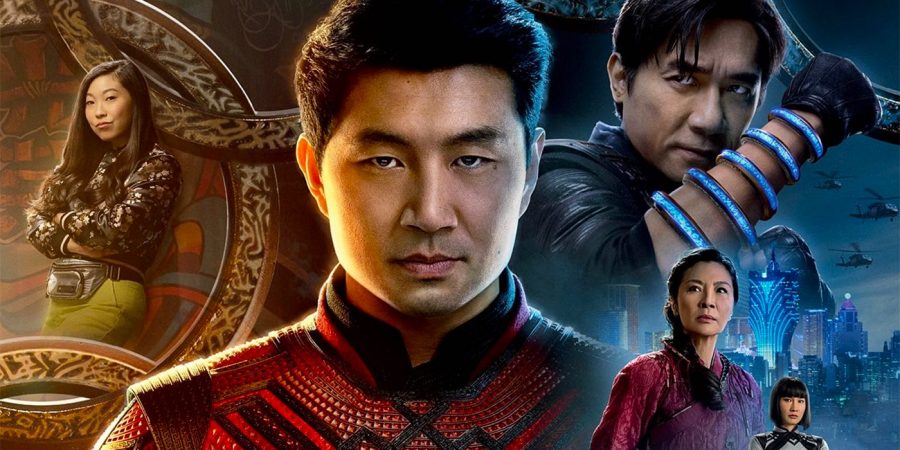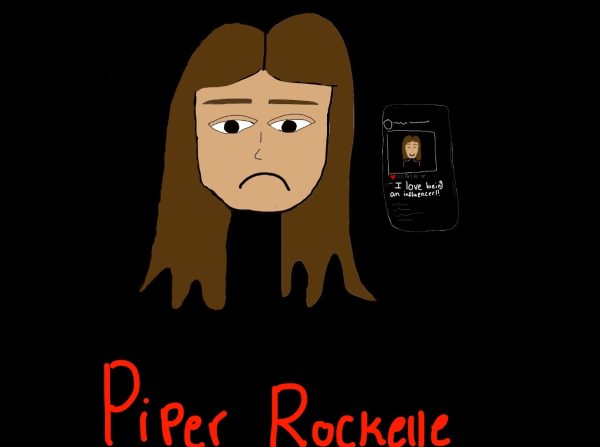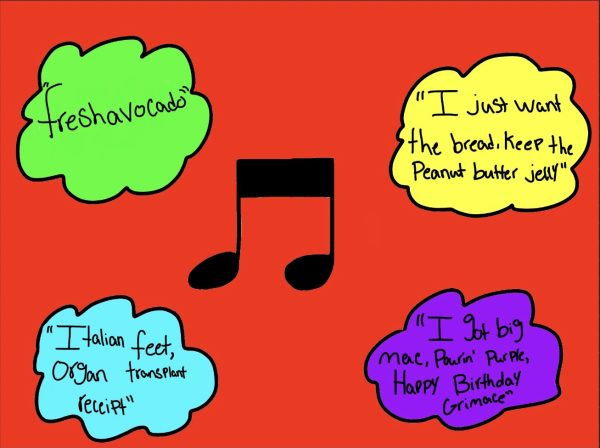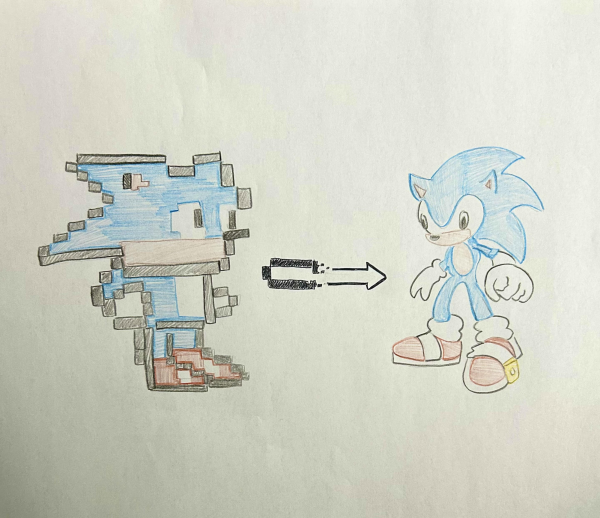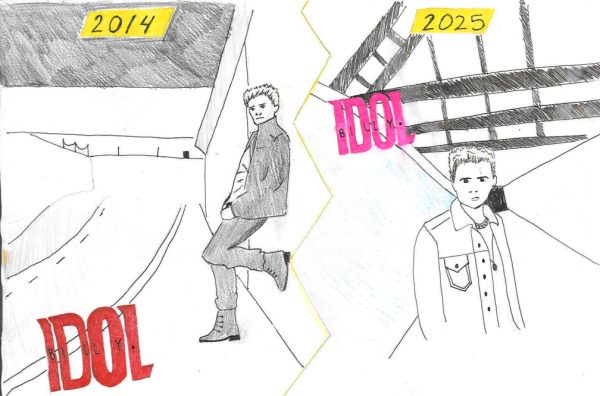Shang-Chi snags attention of Marvel fanatics
“Shang-Chi and the Legend of the Ten Rings” earned $400 million in the box office in the first six weeks of its release, beating out competitors like “Free Guy” and “Candyman.”
“Shang-Chi and the Ten Rings” is the second Marvel movie in Phase 4 of the Marvel Cinematic Universe (MCU) and the first one with an Asian lead. It exclusively hit the big screens on September 3, setting new precedents for filmmakers everywhere.
“Shang-Chi” comes after the successful debut of “Black Widow” this summer, the studio’s first feature since the pre-pandemic release of “Spider-Man: Far from Home” in 2019, and after Marvel’s launch of its highly anticipated first four television series on Disney+. Although “Black Widow” was technically released during Phase 4, the events in the movie places it more in Phase 3 of the MCU timeline circa 2016, making “Shang-Chi” kickstart a new era for Marvel.
In this coming-of-age story, Shang-Chi (played by Simu Liu), living under the U.S. alias “Shaun”, is forced to confront the life he left behind in China as an assassin for the Ten Rings organization. When his abusive and powerful father Xu Wenwu (played by Tony Leung) comes to kidnap him and his sister in search of Shang-Chi’s deceased mother Ying Li (played by Fala Chen), he is sent on a mission to stop Wenwu from potentially destroying Li’s hometown.
The script by Dave Callaham, director Destin Daniel Cretton and Andrew Lanham offers a compelling storyline that left me wanting to know more: What happened to Shaun’s mom? Why did his dad turn to a life of crime? Why did he leave his sister behind when he escaped? All of these questions get answered gradually throughout the movie through intense, effective flashbacks.
The humor in the movie is impeccable too, leaving audiences giggling about corny jokes and callbacks to amusing scenes that happened just minutes ago. All actors are game for comic relief in between and sometimes even during setpieces, but especially Benedict Wong as Master of the Mystic Arts Wong (reprising his role from “Doctor Strange”) and Ben Kinglsey as Trevor Slattery (also reprising a previous Marvel role, this time from “Iron Man 3”). Slattery also has a CGI sidekick named Morris that nearly steals the show.
“My favorite character out of the whole movie has to be Morris,” Brianna Valle (12) said. “When I first saw him, I thought he was so adorable and cute, and he adds a bit of comedic relief to the second half of the movie that has some darker tones and atmosphere.”
The visual appeal of the movie was also a huge selling point, with beautiful soul-shattering shots from cinematographer William Pope (“Scott Pilgrim vs. the World”) and creative and unique mythical creatures. The effects team from Weta Digital (also known for their work on this summer’s impressive “The Suicide Squad” and “Godzilla vs. Kong”) really went all out with their CGI creations that really feel lived-in rather than added after-the-fact.
“What I love most about ‘Shang-Chi’ is the cinematography,” Valle said. “Not only is it a fun movie but it’s also visually beautiful, [and] I think the little details like making [Xu Wenwu]’s base gloomy and making [Ying Li]’s village bright and vibrant helped the audience have a deeper understanding of where his parents come from and who Shang-Chi takes after the most.”
On the other hand, the movie fell short in multiple areas. First off, although it is encouraging knowing that Marvel is creating more movies with more actors of color involved, the fact that 24 MCU films had been released over the span of 13 years before the main character of one was an Asian-American/Pacific Islander is concerning. “Black Panther” is the only other one with a POC main character, which raises some very important questions about exactly how much Marvel values diversity. Are they being performative with their newfound inclusivity or not?
Second off, Marvel fans have called out the absence of significant marketing of the movie, especially compared to previous blockbusters like “Avengers: Endgame”, alleging racism. Instead of Marvel promoting the movie as much as others, it seems as though Simu Liu, the lead, has been doing the bulk of the promotion on social media.
Perhaps the most common critique of the movie, though, is the casting of the comedian-turned-actress Awkwafina. She has, in recent years, come under fire for her retired use of African-American Vernacular English (AAVE) that she used for years in her comedy skits, and some are claiming that she built her career off of it.
“Um…you know, I’m open to the conversation,” Awkwafina said in a recent interview with NME. “I think it really is something that I think is a little bit multi-faceted and layered, and so…yeah.”
Fans of the actress point out that she grew up in Queens, New York, where the blaccent she puts on is more widespread, but both the neighborhood that she lived in and the school that she attended were predominantly white. Awkwafina seems to understand the complexities of race when it doesn’t pertain to her career but falls short when owning up to her own mistakes.
“I refuse to do [Asian] accents,” Awkwafina said in a 2017 interview with Paper Mag. “I’m not okay with someone writing the Asian experience for an Asian character.”
Overall, with “Shang-Chi and The 10 Rings” being one of the only big-budget movies with true representation for the Asian community, the question of whether or not the good outweighs the bad in terms of casting are left up to the watcher.
With jaw-dropping scenery, impeccable storytelling and baby steps towards true and meaningful representation, it is hard to dislike the amazing film “Shang-Chi and the 10 Rings”.

Kwot Anwey is a Senior at Columbia Heights High School and she is currently the Co-Editor-in-Chief of the Heights Herald. She enjoys journalism because...


